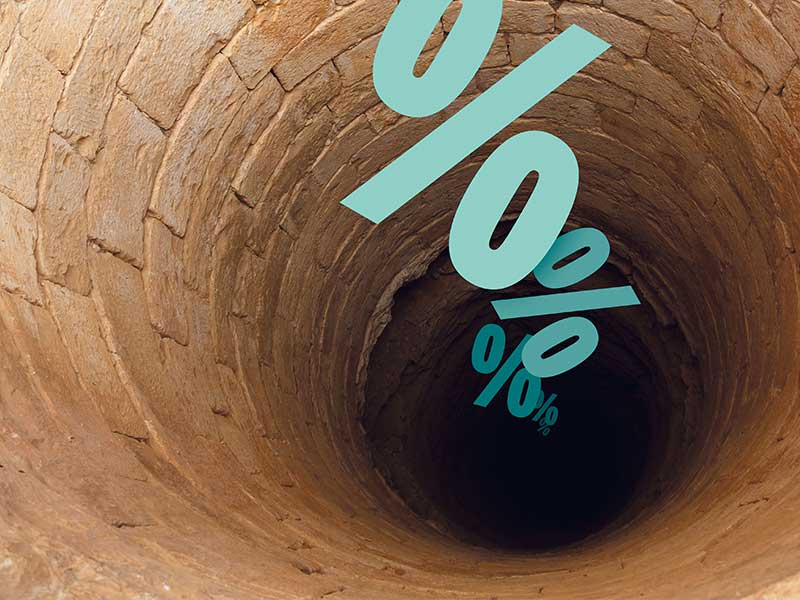
While the risk of a recession remains relatively low, the real challenge for investors will be finding yield as low interest rates become the norm in a self-perpetuating cycle, a FTSE Russell fixed income expert says.
Speaking at a breakfast event Thursday hosted by the Canadian ETF Association, FTSE Russell fixed income research director Robin Marshall showed a number of charts pointing to the “Japanification” of bond yields across G7 countries.
“The evidence from Japan is relatively strong that this decline in yields may well continue,” Marshall said, adding that low interest rates have the potential to self-perpetuate.
“If you drive interest rates down to zero, you tend to prop up zombie companies and banks that probably shouldn’t be allowed to exist,” he said.
Near-zero interest rates makes it harder for financial institutions that are required to match long-term liabilities with suitable assets. The low rates drive up liabilities, requiring institutions to buy more low-yielding assets to match those liabilities, he said, “which in turn causes yields to decline again, which in turn causes liabilities to increase.”
Longevity risk adds to the pressure, as people live longer and spend less, putting stress on pension systems, while purchases of long-dated assets further contribute to lower yields.
“The process becomes self-feeding and you have a financial system that is hard-wired to very low rates,” Marshall said. “There’s almost a spiral downwards in yields.”
This also increases the risk of a “liquidity trap,” where central banks lowering rates no longer leads to increased spending.
Marshall said investors haven’t yet adjusted to the new low-rate norm, having anchored expectations to bond yield ranges from the 1980s and 1990s.
While growth may be slower and yields flat in the coming years, Marshall said a recession is not necessarily imminent.
Markets responded to the yield curve on U.S. 10-year and two-year Treasuries inverting last year, but the picture was incomplete, he said. The long end of the curve also inverted ahead of previous recessions, he said, and that hasn’t happened with 20-year Treasuries.
“Recession risks, in our view, are lower than what we’re seeing in a cursory examination of the yield curve having flattened,” Marshall said.
The coronavirus notwithstanding, he said the risk of a recession in the near term is low.